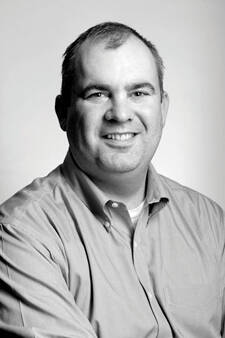In the international media rumpus following the publication last month of a monumental interview with Pope Francis in this magazine and 15 other Jesuit journals, attentive readers might have noticed the stated desire among some commentators for “the original text” or “the complete interview.” What did the pope really say? Another juicy papal interview published in La Repubblica a few weeks later with an Italian atheist (who admitted he had neither recorded the interview nor taken any notes) only upped the ante, leading to more wistful requests for “the unedited version” or “the pope’s actual words.”
It’s nonsense. There’s no such thing, or at least such a thing anyone could make heads or tails of. Everything is edited. While it is outrageously unprofessional not to record an interview or take notes, no writer in human history has provided readers with “what was really said.” Have you ever seen the transcript of an oral interview? The most eloquent among us pepper our talk with ums and uhs and nonsensical utterances; we trail off in midsentence; we grunt when we mean yes, hiss between our teeth to mean no. Want proof? Record your last conversation with your best friend, and then type it out exactly as it sounded. You thought you were arguing about baseball, but why does it look instead like you were simultaneously suffering debilitating strokes?
Beyond this basic problem are issues of translation. I work full time as an editor (not at this magazine), and face translation questions almost every day. When a liberation theologian writes “hacer la verdad,” is the correct rendering “do the right thing,” which might be its sense? Or do we go with “do the truth,” a most infelicitous phrase in American English? How about a more literal “construct the truth,” which sounds suspiciously like monkeying with the facts? Even more complicated: how do you convey what someone like Pope Francis means by “I have never been like Blessed Imelda”? (The editors at America went with “a goody-goody,” but left the original as well.) Different languages have different rules for double negatives, too—a literal translation can often convey the exact opposite of what the author meant. Thomas Aquinas more than once got Aristotle exactly wrong for this very reason.
Occasionally one also sees the minor gaffe that gets cleaned up to make everyone look a little more eloquent. Neil Armstrong never said, “That’s one small step for a man, one giant leap for mankind” when he stepped onto the moon. Instead, he said “one small step for man,” a truly unfortunate gaffe that doesn’t really make much sense unless one believes he was cheering because he had gotten one up on the ladies. To the moon, Alice! Similarly, Shakespeare gave Julius Caesar “et tu, Brute?” as his famous dying words, which sounds a bit more eloquent than the “tu quoque, Brute?” that any classics professor will tell you was the far more likely Latin cry. And all this ignores the report of the Roman historian Suetonius, that Caesar’s dying words were actually in Greek! Awkward for the nativists.
There are surely few in our postmodern culture who cling anymore to the naïveté that a reporter or an editor is an unbiased conduit of information, printing “just the facts.” We all bring our biases and our histories to the writer’s keyboard and to the editor’s blue pen. At the same time, it is equally naïve to imagine that any conversation, translation or observation somehow possesses a single explicit and unalloyed meaning in and of itself, or that only by banishing the mischief of the word-tinkerers can that meaning be retrieved. We’re all editors, and everything is edited.
I will admit, of course, that sometimes an editor comes along who takes the license to craft meaning and convey the gist of things too far. I recently read the true story of a promising young student in a theological seminary who was inspired by the political events of his time toward Marxist revolutionary ideals. He abandoned his theology studies to become an editor instead. He later moved from newspapers into politics, though he retained his love of manipulating the written word throughout his life. In his seminary days he was known as Joseph Djugashvili, but later edited his own Georgian-sounding name for one just a little more Russian: Joseph Stalin.








